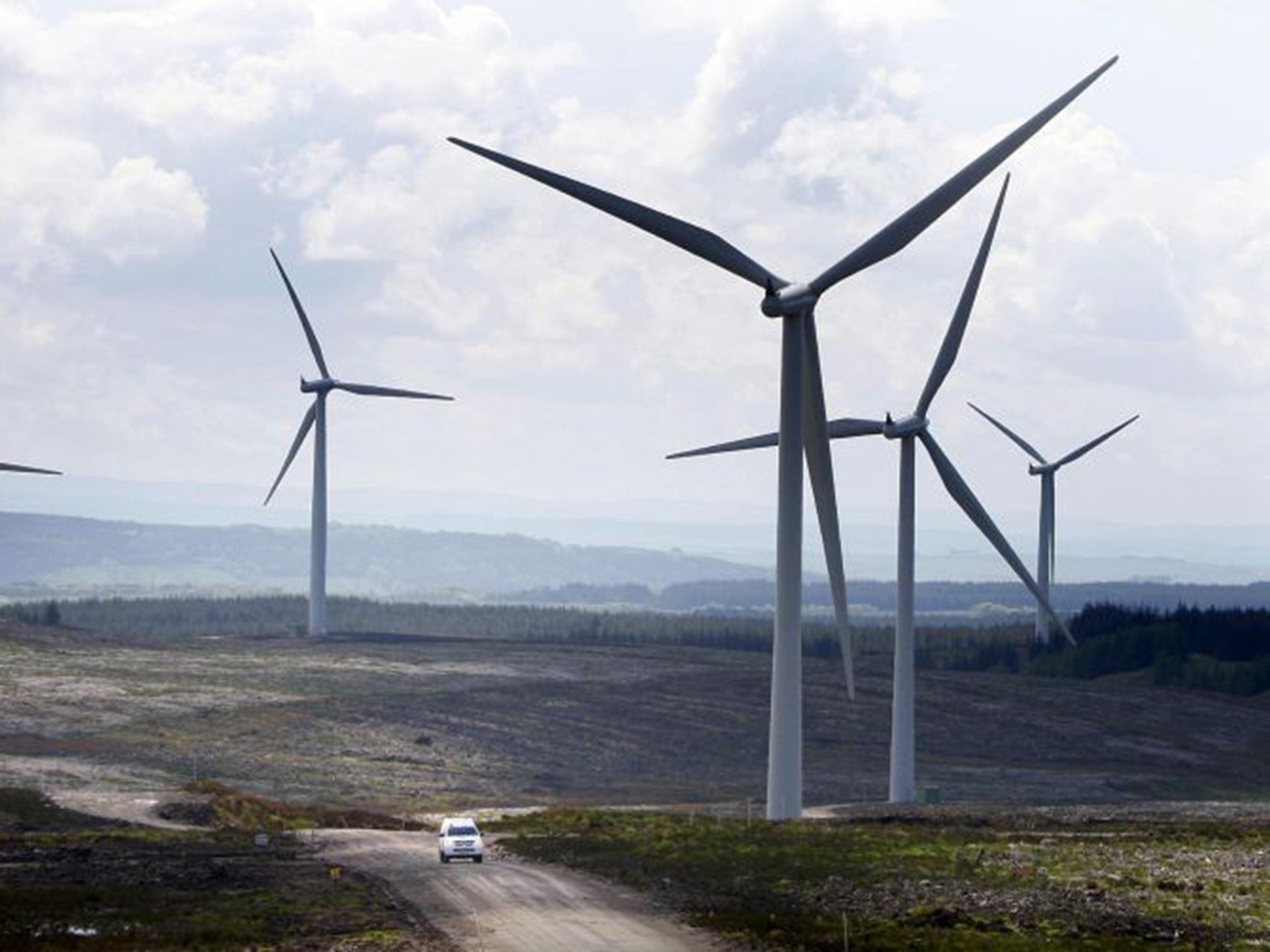Your support helps us to tell the story
From reproductive rights to climate change to Big Tech, The Independent is on the ground when the story is developing. Whether it's investigating the financials of Elon Musk's pro-Trump PAC or producing our latest documentary, 'The A Word', which shines a light on the American women fighting for reproductive rights, we know how important it is to parse out the facts from the messaging.
At such a critical moment in US history, we need reporters on the ground. Your donation allows us to keep sending journalists to speak to both sides of the story.
The Independent is trusted by Americans across the entire political spectrum. And unlike many other quality news outlets, we choose not to lock Americans out of our reporting and analysis with paywalls. We believe quality journalism should be available to everyone, paid for by those who can afford it.
Your support makes all the difference.A ban on subsidies for new onshore wind farms is to be lifted by the government, reversing a four-year ban introduced by David Cameron.
Environmental groups welcomed the policy change, which followed a 2015 Tory manifesto pledge to “halt the spread of subsidised onshore wind farms”.
The ban resulted in a significant drop in onshore wind development, just as advancing technology meant the price of onshore wind energy dropped sharply.
An official announcement of the policy change is expected to be made by Alok Sharma, the business and energy secretary.
“This is great news for anyone who pays an energy bill, and it’s great news for our climate,” said John Sauven, executive director of Greenpeace UK.
“Onshore wind and solar are not only some of the cheapest sources of energy, reducing costs for everyone, but they are a vital part of putting the UK on track to net zero as quickly as possible.
“The government now needs to engage with local communities in order to get large amounts of onshore wind and solar off the ground. Leading by example, by tripling the UK’s wind and solar by 2030, is a prerequisite for successful UK leadership at this year’s global climate talks in Glasgow.
“This is an important measure to clean up our power system, but action is needed across the board, including delivery of the government’s offshore wind target and upgrading the grid for electric vehicles and storage.”
The subsidy ban was brought in to placate critics of the turbines’ visual impact on the landscape. The government said at the time that around 250 planned wind farms were cancelled as a result of the move.

A large number of projects were rushed through ahead of the subsidy ban, with a record generating capacity coming online in 2017, representing 2.6GW and doubling the previous record.
Onshore wind power is now the cheapest renewable way of generating electricity in the UK, undercutting other modes like solar power. While offshore wind has also reduced in price, its inherent engineering challenges means costs are higher for turbines out at sea.
Dr Alan Whitehead, Labour’s shadow minister for energy and climate change, said: “After years of Labour calling on the government to remove its ban on funding onshore wind and solar, it has finally relented.
“We need every tool at our disposal to fight the climate crisis, but for years the government’s obstinate resistance has forced us to fight with one hand behind our back.
“We now need to catch up on five lost years, remove the planning barriers to onshore wind energy this government put in place and look at the eye-watering business rates they put on solar energy.”

Join our commenting forum
Join thought-provoking conversations, follow other Independent readers and see their replies
Comments